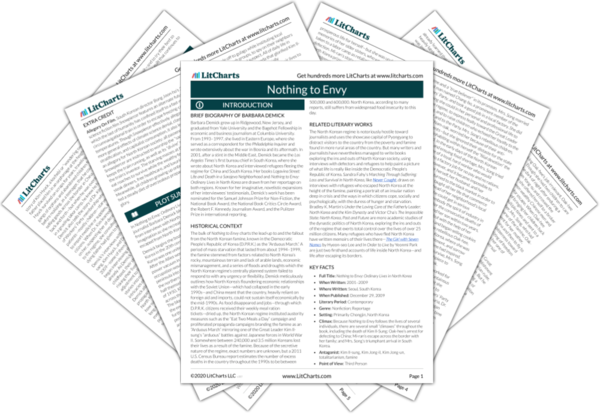Demick shows how even in the midst of an unbelievably dark time, many North Korean citizens took to heart the core values of self-reliance they’d been taught all their lives and found ways to survive. The exposure to goods from the outside world, however, flew directly in the face of the
juche ideology. Demick, then, presents the conflicting drives and desires that were motivating North Koreans at a time of unprecedented turmoil and widespread uncertainty.
